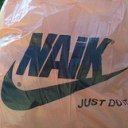Richard Raysman
February 07, 2003 | Law.com
Sample Source Code Escrow AgreementIn any software licensing agreement, delivery of the source code can become one of the key issues because of its great value to both the vendor and the user. This sample source code agreement favors the user by providing the user with access to the complete source code from the vendor.
By Richard Raysman and Peter Brown
6 minute read

January 15, 2013 | New York Law Journal
EU's 'UsedSoft' Ruling Tackles User Rights in Licensed SoftwareIn their Technology Law column, Richard Raysman, a partner at Holland & Knight, and Peter Brown, a partner at Baker & Hostetler, write that many users might be surprised to learn that the software running on their computers is "licensed," not "sold," and subject to contractual restrictions that may not necessarily qualify a particular user as an "owner" of a copy of the software with the implicit rights of resale under the Copyright Act's first sale doctrine.
By Richard Raysman and Peter Brown
12 minute read

January 13, 2012 | Legaltech News
How to Prove Contributory Online Trademark InfringementBaker Hostetler's Peter Brown and Holland & Knight's Richard Raysman discuss trademark owner actions against online service providers for contributory liability in counterfeit goods sales.
By Richard Raysman and Peter Brown
11 minute read
September 05, 2002 | Law.com
Sample Complaint for Relief Pursuant to the Digital Millennium Copyright ActThe purpose of the Digital Millennium Copyright Act (DMCA) is to enforce certain obligations under the WIPO copyright treaty and address a number of significant copyright-related issues in the digital environment such as implementing technological circumvention protection measures. This sample complaint seeks relief for circumvention of copyright protection systems under the DMCA.
By Richard Raysman and Peter Brown
5 minute read

March 12, 2013 | New York Law Journal
Courts Address Clickwrap and Electronic ContractingIn their Technology Law column, Richard Raysman, a partner at Holland & Knight, and Peter Brown, a partner at Baker & Hostetler, write that discuss the various types of online agreements, including the more modern hybrid clickwrap transactions, as well as the characteristics of enforceable online agreements.
By Richard Raysman and Peter Brown
12 minute read

October 09, 2012 | New York Law Journal
Analyzing Claims Under Computer Fraud and Abuse ActIn their Privacy Matters column, Richard Raysman, a partner at Holland & Knight and Peter Brown, a partner at Baker & Hostetler, discuss "unauthorized access" under the CFAA as it relates to employees who abuse computer access privileges and misuse company information, as well as the use of novel CFAA theories to seek redress from the transmission of unwanted data to mobile phones and communication systems.
By Richard Raysman and Peter Brown
12 minute read
May 21, 1999 | Law.com
Recent Tech Litigation: Conversion, Trespass and Other IssuesRecently, computer-related cases have confronted new kinds of claims -- including conversion and trespass to property, copyrightability of shareware, and inducing breach of contract. As the Internet transports more and more communications and products around the world, courts have also had to grapple with jurisdiction and venue issues. This paper gives an overview of recent developments in tech-related litigation.
By Richard Raysman and Peter Brown
15 minute read
April 07, 2003 | New York Law Journal
Computer LawBy Richard Raysman And Peter Brown
12 minute read

July 11, 2006 | New York Law Journal
Computer LawRichard Raysman and Peter Brown, partners at Brown Raysman Millstein Felder & Steiner, write that in overturning the Federal Circuit's "general rule" favoring permanent injunctions, the Supreme Court stated that trial judges instead must use the traditional four-factor test when deciding whether to grant permanent injunctions in patent cases. Having decided this narrow issue, the concurring opinions carved out additional ground and may have broader implications in future patent cases.
By Richard Raysman and Peter Brown
12 minute read
February 08, 2002 | New York Law Journal
Computer LawY our client is a company that sells stock photography for use in advertising. The client calls to inform you that dozens of its copyrighted images are being used on a Web site without permission, and the Web-site operator has refused requests to remove them. The client wants the images removed promptly, not only because of a potential loss of revenue if the images are freely disseminated, but also because many of the images have already been licensed to legitimate customers for their exclusive use. How sho
By Richard Raysman and Peter Brown
12 minute read
Trending Stories
- 1Courts, Lawyers Press On With Business as SoCal Wildfires Rage
- 2Florida, a Political Epicenter, Is the Site of Brownstein Hyatt's 13th Office
- 3Law Firms Close Southern California Offices Amid Devastating Wildfires
- 4Lawsuit alleges racial and gender discrimination led to an Air Force contractor's death at California airfield
- 5Holland & Knight Picks Up 8 Private Wealth Lawyers in Los Angeles
More from ALM
- Scan In Progress: Litigators Leverage AI to Screen Prospective Jurors 1 minute read
- Legal Speak at General Counsel Conference East 2024: Match Group's Katie Dugan & Herrick's Carol Goodman 1 minute read
- Legal Speak at General Counsel Conference East 2024: Eric Wall, Executive VP, Syllo 1 minute read



